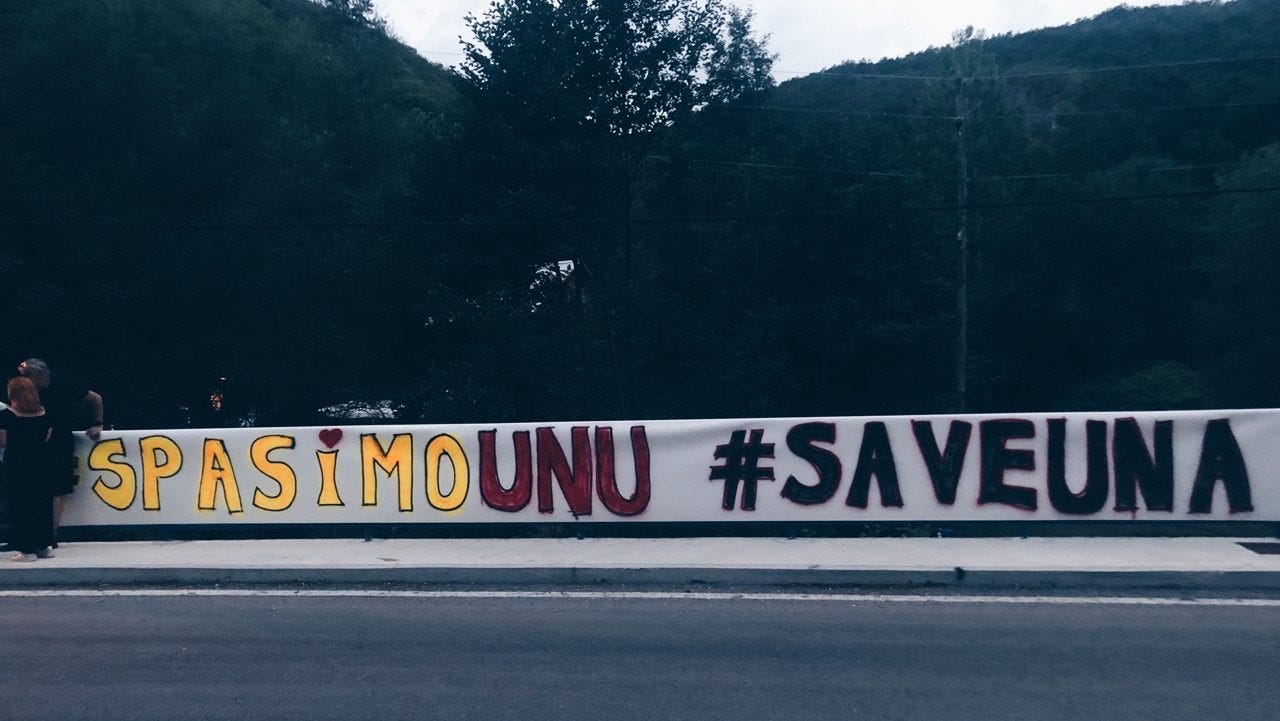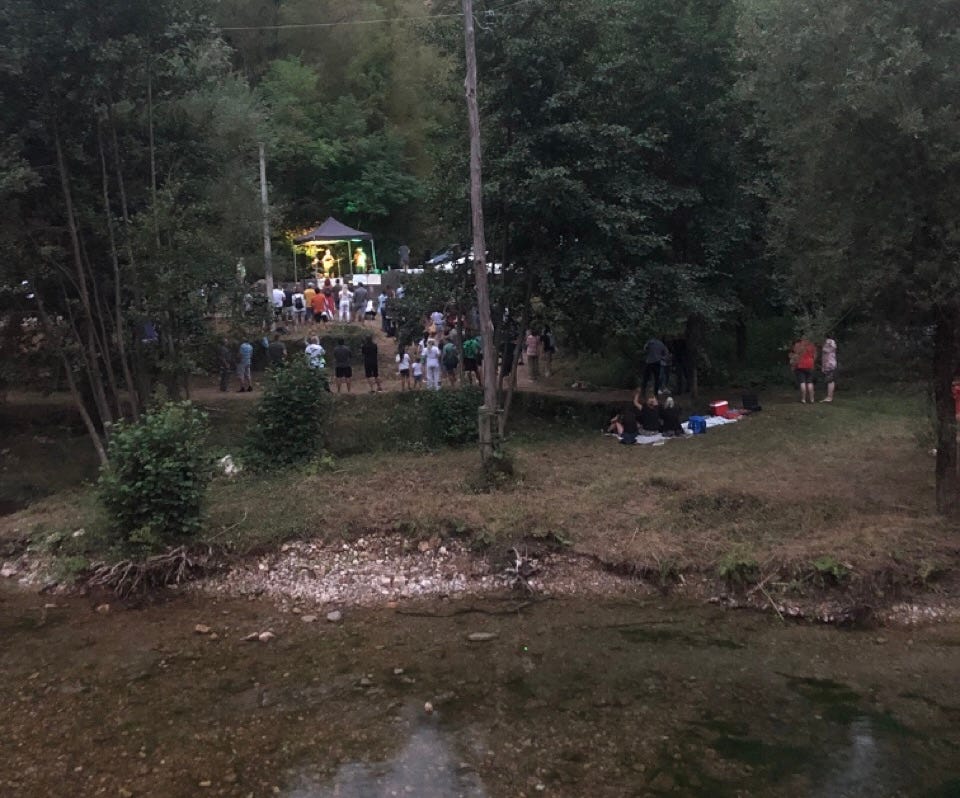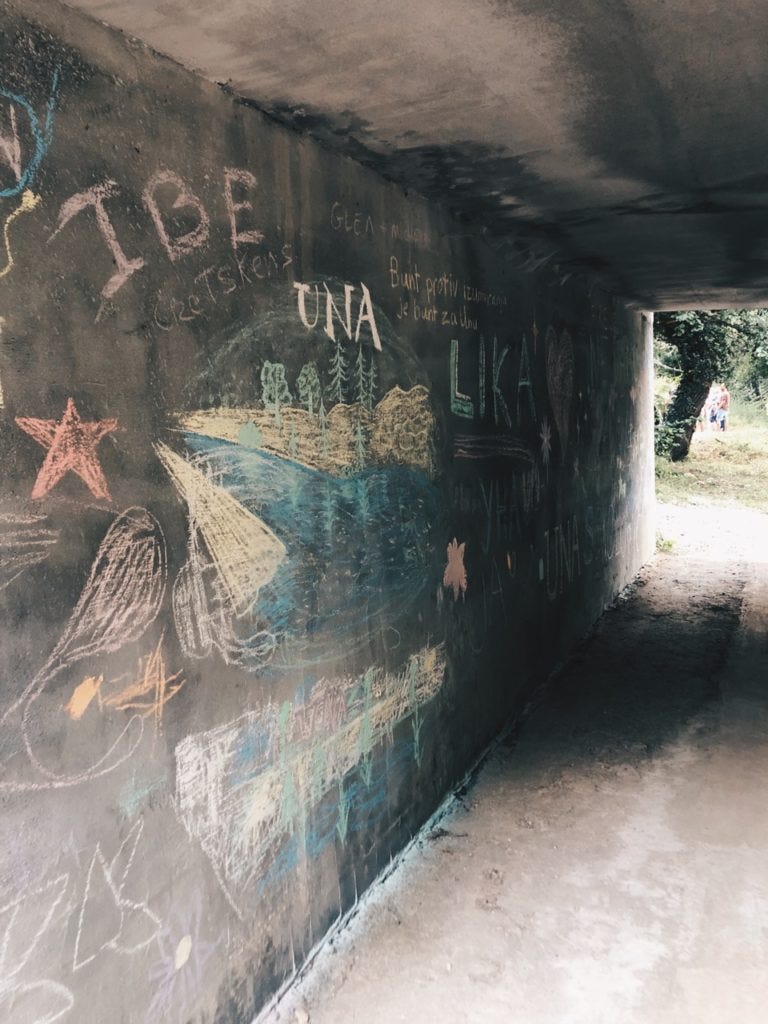Community Resistance Halts Hydroelectric Project
Activists in Croatia Secure Victory Against Construction of Hydroelectric Plant
Local activists in Croatia have secured a significant victory in their weeks-long battle against the construction of a small hydroelectric plant near the source of the Una River, known for its extraordinary beauty. After numerous warnings and persistent protests, the Croatian State Inspectorate, responsible for the oversight of environmental issues, finally initiated administrative proceedings against the private investor, effectively halting further construction on the site.
This victory has been met with joy and relief by activists from organisations like Udruga Una and ACT-Fundacija Atelje za društvene promene. The organised resistance over the past weeks demonstrated that, as Udruga Una stated on Monday 19 August, “with unity and determination, we can fight against crime, corruption, and stop ecocide.”
However, the activists recognize that their fight is not yet over. While they wait for the construction machinery to leave, they remain vigilant, knowing that a long road lies ahead to repair the damage already done. One of their priorities now is to engage with existing spatial plans to ensure that the Una River, protected under local and regional environmental standards, is safeguarded from future exploitation by private investors.
This effort is especially crucial given that the project was only halted because the investor lacked the necessary environmental analysis—not because state or regional authorities had challenged the construction permits issued earlier. Activists have rightly identified this as a key area of focus moving forward, especially considering the indulgent stance many authorities have shown toward small hydroelectric projects across the country. These projects, often more about securing public funds than attempting to build a more sustainable energy sector, pose significant risks to the communities living nearby.
Throughout their campaign, local activists from Bosnia and Herzegovina and Croatia garnered support from across Europe. The area around the Una River became a center for community gatherings, with musicians and actors joining the cause through concerts and performances. Just one day before the State Inspectorate’s decision, a concert drew around 200 people to the river’s source—a significant crowd for the small towns of Srb and Donja Suvaja, part of an area that has seen its population decimated due to the persecution of the Serb community during the dismantling of Yugoslavia and the transition to capitalism that followed.
The concert audience, including many people who have grown up along the river, emphasized that their resistance would continue as long as needed. With children—many of the girls named after the Una River—taking part in the campaign alongside their parents, the message to the authorities is clear: the community will not allow the devastation of this or other rivers in the area.







